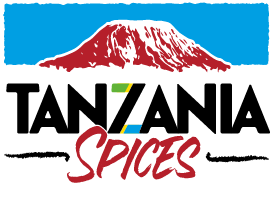
Experience Tanzania’s Flavours
Uplift your senses with the warm, rich, fragrant scent of clove, pepper, ginger, cinnamon and cardamom —the signature scents of Tanzanian spices.
The United Republic of Tanzania places a high value on the local spice industry and its potential for the economy. The Government created the Tanzania Spices label to support the sector, through the Tanzania Trade Development Authority (TanTrade) and the private sector, represented by the Tanzania Spices Association (TASPA)
Meet the People Behind the Spices
From small family farms to growing spice enterprises, Tanzanian SMEs are at the heart of the country’s vibrant spice industry. Their dedication to quality, sustainability, and tradition brings the world some of the finest spices, cultivated with care and expertise..
Supporting Tanzania’s Spice Producers
The United Republic of Tanzania recognizes the vital role of the spice sector in driving economic growth. To support local producers, the Tanzania Trade Development Authority (TanTrade) and the Tanzania Spices Association (TASPA) work together to help businesses expand their reach and access new markets.
Bringing Tanzanian Spices to the World
Through initiatives like the Tanzania Spices label, SMEs gain better visibility, access to global buyers, and support in ensuring high quality and sustainability standards. This allows them to compete more effectively in international markets while preserving the authenticity of Tanzanian spices.
Are you looking for High-Quality Tanzanian Spices?
Connect with Tanzanian spice producers and discover unique flavours straight from the source.
“A Tanzania Spices label will cement Tanzania’s reputation
for quality, organic spices in the global market”
”

Tanzania’s range
of spices
Tanzania produces over 30 important spice crops that, in the long term, will be covered by the Tanzania Spices label. These include clove, pepper, ginger, cinnamon, cardamom, vanilla, chillies, onion, coriander, garlic and lemongrass.
In the short term, Tanzania Spices focuses on crops with the highest potential for export and production improvement. These are clove, pepper, ginger, cinnamon and cardamom.
Clove makes up over 90% of Tanzania’s global spices exports. It is mainly grown in Zanzibar but production is rapidly expanding on the mainland. Pepper and ginger exports are also increasing, in line with strong global consumption.
Tanzania produces Ceylon cinnamon, also known as “true cinnamon”. Due to rising world demand and new plantations in-country, Tanzania is poised to become a major source for this popular spice.
Tanzania once ranked as the world’s third-largest producer of cardamom. It has the potential to regain this ranking through increased planting and good plantation management.
Read more about Tanzania’s top 5 spices.
Recognition and regulation
Spices have been farmed in Tanzania for centuries, however, they have not been recognised as important foreign exchange earner crops.
While more traditional cash crops have overseeing authorities, spice production in Tanzania is largely unregulated. Spices are typically grown by small-scale farmers who use traditional methods and rely on middlemen traders to export their products overseas.
The Tanzania Spices label will bring regulation and focus to the country’s spice sector. Tanzanian spices have never been trademarked; as such, exported products are often repackaged and on-sold under another country’s label.



